Femia > Health Library > Pregnancy > Pregnancy week by week > Exploring week 18: What’s happening with baby and your changing body
Exploring week 18: What’s happening with baby and your changing body
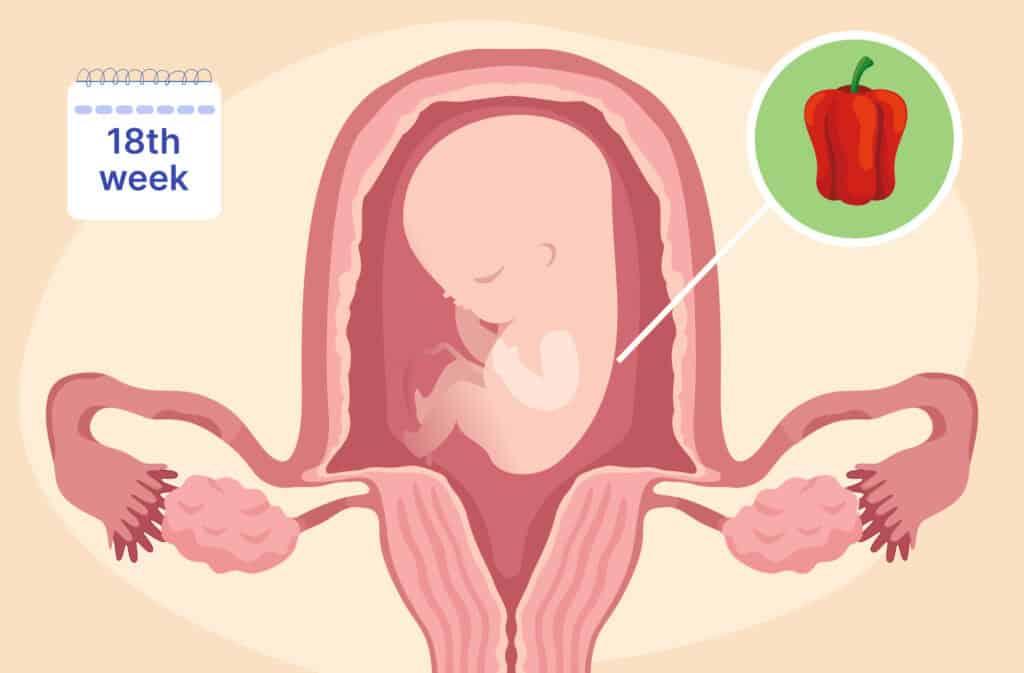
- Updated Feb 27, 2025
- Published
CRAFTED BY HUMAN
Crafted by human At Femia, we provide accurate and up-to-date information at every stage of your journey, from trying to conceive, pregnancy and postnatal support. All content is created by a real person based on in-depth research and own professional experience. Femia ensures that you will receive expert advice, strict accuracy and a personalized approach from our authors/medical experts. Learn more about our editorial policy.
FACT CHECKED
Fact checked At Femia Health, we maintain the highest standards of editorial excellence in delivering content focused on helping you conceive, guiding you through pregnancy, and supporting you postpartum. Explore our content review principles to learn how we ensure the accuracy and quality of our health and lifestyle tips for every stage of your journey.
At 18 weeks pregnant, your baby is developing more defined movements, and you may start feeling light kicks. Your belly is expanding, and new symptoms like backaches or leg cramps might appear as your body adjusts.
At 18 weeks pregnant, you’re almost halfway through your pregnancy, and exciting changes are happening for both you and your baby! As your baby’s muscles and bones strengthen, you may begin to feel light flutters or kicks, especially if this isn’t your first pregnancy. Your body is also adapting with a growing belly and possibly some new symptoms, making it the perfect time to focus on self-care and preparing for the upcoming months. Here’s what to expect in week 18, from baby development to health tips and more.
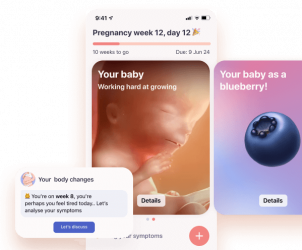
18-week pregnancy symptoms
As you progress further into the second trimester, some new symptoms may arise as your body continues to adapt to your growing baby. Here are common symptoms at 18 weeks:
Increased appetite
Feeling hungrier than usual? At 18 weeks pregnant, it’s normal to experience an increase in appetite, along with specific food cravings. Your body requires more energy to support the growing baby and the changes occurring, such as higher blood volume, an expanding uterus, and increased fat stores. To keep hunger in check and nourish your body, try eating smaller meals or snacks every three hours, focusing on a balance of protein, fiber, and healthy fats.
Dizziness
With all the changes happening in your body, it’s not uncommon to feel lightheaded or dizzy at times. This can occur if you stand up quickly, or due to factors like anemia, dehydration, or overexertion. To minimize dizziness, stay hydrated, avoid sudden movements, and make sure you’re eating enough. If dizziness is persistent or frequent, check in with your healthcare provider.
Swelling
Swelling in your feet, ankles, and hands is a typical symptom during pregnancy, especially in the second trimester. However, if the swelling is sudden or severe, or you notice swelling in your face or hands, it could signal a problem such as preeclampsia. If swelling is excessive or accompanied by other symptoms, contact your provider immediately. Wearing comfortable shoes and elevating your feet can help manage mild swelling.
Vaginal discharge
Increased vaginal discharge is common during pregnancy due to elevated estrogen levels. Healthy discharge is usually clear or milky white, and it can range from thin to thick in consistency. If the discharge has a strong odor, changes color, or is accompanied by discomfort, consult your healthcare provider to rule out infection.
Leg cramps
Leg cramps are a common pregnancy discomfort, often linked to swelling and the extra weight your body is carrying. When a cramp strikes, try stretching your calf muscles by straightening your leg and flexing your foot towards your shin. To prevent cramps, stay active, stay hydrated, avoid sitting with crossed legs for extended periods, and incorporate stretching exercises like rolling your ankles or wiggling your toes throughout the day. Some women find magnesium supplements helpful, but always consult your provider first.
👉Find out more: 17 weeks pregnant: Baby’s growth, position & belly changes
Your body at 18 weeks pregnant
At 18 weeks, your baby is growing rapidly, and so is your uterus, which is now expanding close to your belly button. This growth may cause some discomfort, especially as your posture adjusts to accommodate the changes. Many women experience back pain, and you may notice a shift in your center of gravity. These changes can lead to mild balance issues, so it’s important to move carefully and wear supportive footwear to avoid strain.
As your baby becomes more active, you may begin to feel the first subtle movements, such as gentle kicks and flutters. These early movements are a thrilling reminder of the life growing inside you. As hormone levels continue to stabilize, you may also feel an increase in energy, which can help you tackle daily activities and prepare for the exciting months ahead. Make sure to continue staying hydrated, eating well, and listening to your body’s signals for rest.
18-week pregnant belly
At 18 weeks, many women have a noticeable bump as the uterus continues to expand upward. Your belly may feel rounder and firmer, and you may find that maternity clothes or looser-fitting clothing are now more comfortable.
Baby development at 18 weeks
- Your baby’s face. By 18 weeks, your baby’s facial features are becoming more defined. The ears, nose, and lips are easily recognizable on an ultrasound, while the eyelids, eyebrows, and eyelashes are taking shape. Tiny nails and fine hair are also beginning to grow, adding to the distinct features that will soon resemble a little person.
- Lungs developing. Your baby’s lungs are showing significant progress this week. The bronchioles, the smallest tubes in the lungs, are starting to form, and respiratory sacs are beginning to appear at the end of these tubes. These sacs will eventually develop into structures that allow for the exchange of oxygen and carbon dioxide once your baby is born.
- Gender development. At 18 weeks, your baby’s reproductive organs are becoming more distinct. If you’re having a girl, her uterus and fallopian tubes are fully formed and positioned in place. For boys, the genitals are now visible and can be detected through ultrasound.
18-week baby size
The 18-week fetus size is approximately 5.5 inches long and weighs about 7 ounces, similar to the size of a bell pepper. The baby’s body and limbs are more proportionate, and movements are becoming stronger.
18-week ultrasound
An 18-week ultrasound can provide a clearer look at your baby’s growth and development. During an 18-week ultrasound 4D scan, you may even see more detailed images of the baby’s facial features and body movements, like stretching or turning. For those interested, this is also a common time to check the baby’s gender, as genitals are now visible on an ultrasound.
Where is my baby at 18 weeks in my stomach?
At 18 weeks, your baby is positioned low in the abdomen, with the uterus expanding toward the belly button. As your pregnancy progresses, the uterus will gradually shift upward, allowing more space for the baby to grow.

Tests to expect at 18 weeks of pregnancy
- Detailed anatomy ultrasound (Level 2): Conducted between 18-22 weeks, this comprehensive ultrasound examines the baby’s organs, limbs, and facial features, and can often reveal the baby’s sex.
- Blood screening as needed: Regular checkups may include additional blood work to monitor iron levels and overall health.
👉Find out more:
Week 19 of pregnancy: What’s happening with your baby and bump
Halfway there: Insights on being 20 weeks pregnant and fetal development
Health tips and self-care at 18 weeks pregnant
Nutrition for your growing baby
At 18 weeks pregnant, it’s essential to focus on eating nutrient-dense foods to support both your health and your baby’s development. Include plenty of leafy greens, lean proteins, whole grains, and healthy fats in your meals. Omega-3 fatty acids, found in fish like salmon, are especially important for your baby’s brain development.
Stay hydrated
Proper hydration is key during pregnancy, as it supports the increased blood volume and helps your body process nutrients effectively. Aim for about 8 to 10 cups of water a day, especially if you’re experiencing pregnancy-related swelling. Carry a water bottle with you to remind yourself to drink throughout the day.
Exercise for strength and relief
Gentle exercises, such as walking, swimming, or prenatal yoga, are great ways to stay active and keep your muscles strong as your body adapts to pregnancy. These exercises can help alleviate back discomfort, improve circulation, and increase your overall energy levels. Listen to your body and take breaks as needed.
Practice relaxation techniques
The growing physical demands of pregnancy can bring on stress or anxiety. Incorporating deep breathing, meditation, or prenatal massage into your routine can help you relax. A calm, rested body and mind are beneficial for both you and your baby.
Get comfortable and sleep well
As your belly grows, finding a comfortable sleeping position may become a challenge. Try sleeping on your left side with a pregnancy pillow for extra support. Elevating your legs slightly with a pillow can help reduce swelling in your feet and ankles.
Wear supportive shoes
As your body changes, so does your posture. Your center of gravity is shifting, which can cause discomfort in your lower back and legs. Wearing supportive shoes and avoiding long periods of standing can help prevent strain and improve comfort.
Monitor your symptoms
While many common pregnancy symptoms like back pain, mild swelling, and fatigue are normal at this stage, be mindful of any sudden or severe changes. If you experience intense pain, heavy bleeding, or sudden swelling in one leg, contact your healthcare provider immediately to rule out complications such as preeclampsia or blood clots.
Questions from the Femia community
Is it normal to experience leg cramps?
Yes, leg cramps are common due to increased weight and circulation changes. Staying hydrated, stretching, and including magnesium-rich foods can help reduce cramps. Using a pregnancy app can help you track new symptoms like backaches or leg cramps as your body adjusts to this exciting phase.
When will I start feeling more regular baby movements?
Many women start feeling consistent movements between 18 and 22 weeks, though this can vary. If it’s your first pregnancy, it may take a bit longer to recognize these movements.
Can I still sleep on my back?
It’s best to transition to sleeping on your side, especially after the second trimester, to improve blood flow. Use pillows for support to make side sleeping more comfortable.
Which is the hardest week of pregnancy?
The hardest week of pregnancy varies for each woman, but many women find the first trimester, especially weeks 6 to 10, to be the most challenging due to symptoms like nausea, fatigue, and mood swings. The third trimester, around weeks 30-35, can also be tough due to physical discomfort, sleep disturbances, and increased fatigue as the body prepares for labor.
The bottom line
At 18 weeks pregnant, your baby is growing fast, practicing movements, and starting to detect sounds. You may notice an increase in belly size, and appetite, and possibly feel the first gentle kicks. Focus on staying hydrated, practicing good posture, and enjoying the increased energy that often comes with the second trimester.
References
- “18 Weeks Pregnant: Symptoms, Baby Development & Tips.” BabyCenter, www.babycenter.com/pregnancy/week-by-week/18-weeks-pregnant.
- “Week 18 of Pregnancy: Symptoms, Baby Development & More.” What to Expect, www.whattoexpect.com/pregnancy/week-by-week/week-18.aspx.
- “18 Weeks Pregnant: Baby Development, Symptoms & Tips.” NHS, www.nhs.uk/pregnancy/week-by-week/1-to-12/18-weeks/.
- “Pregnancy Week 18: What to Expect.” American Pregnancy Association, www.americanpregnancy.org/healthy-pregnancy/week-by-week/18-weeks-pregnant/.
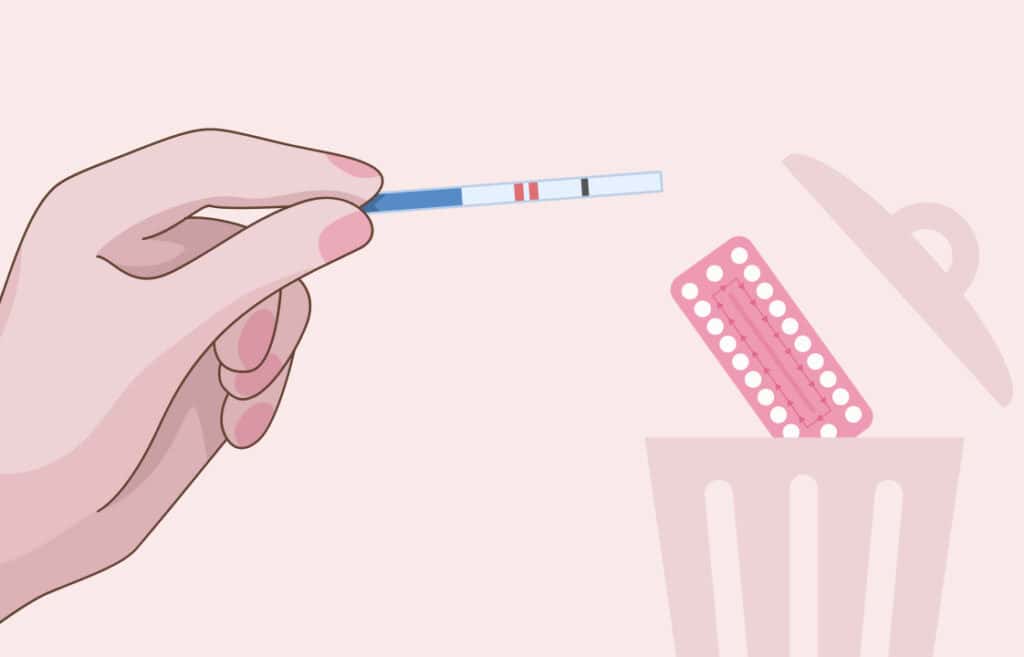
Find out how quickly you will ovulate if you have already stopped taking oral contraceptives and what can affect you greatly while waiting for a fertile window.
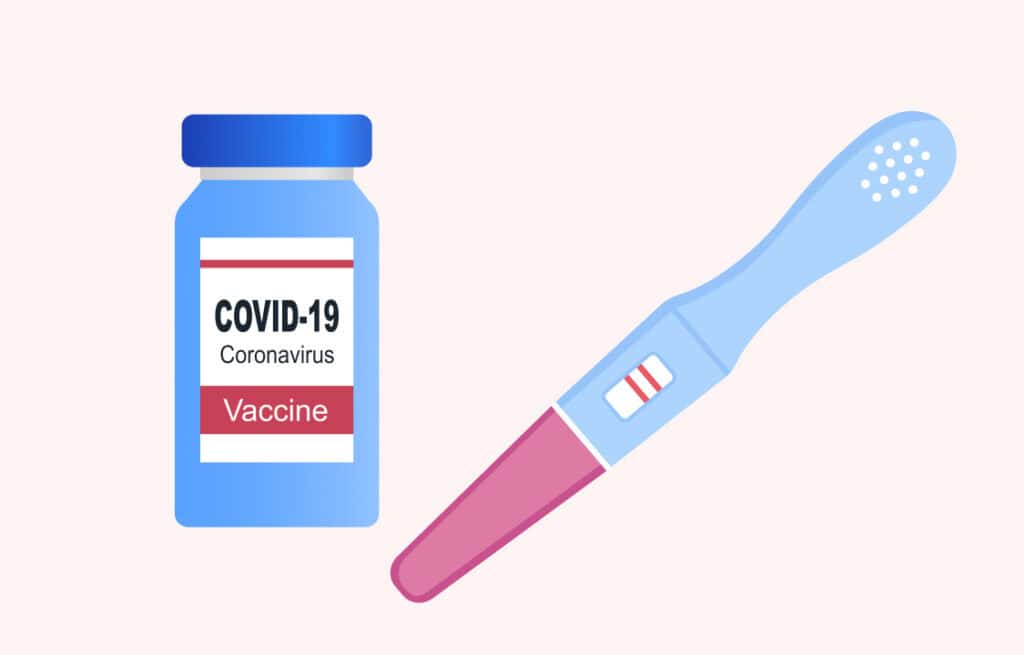
Kansas has filed a lawsuit against Pfizer, alleging misinformation about its COVID-19 vaccine’s safety and effectiveness, including during pregnancy. Learn more about the claims, evidence, and implications.
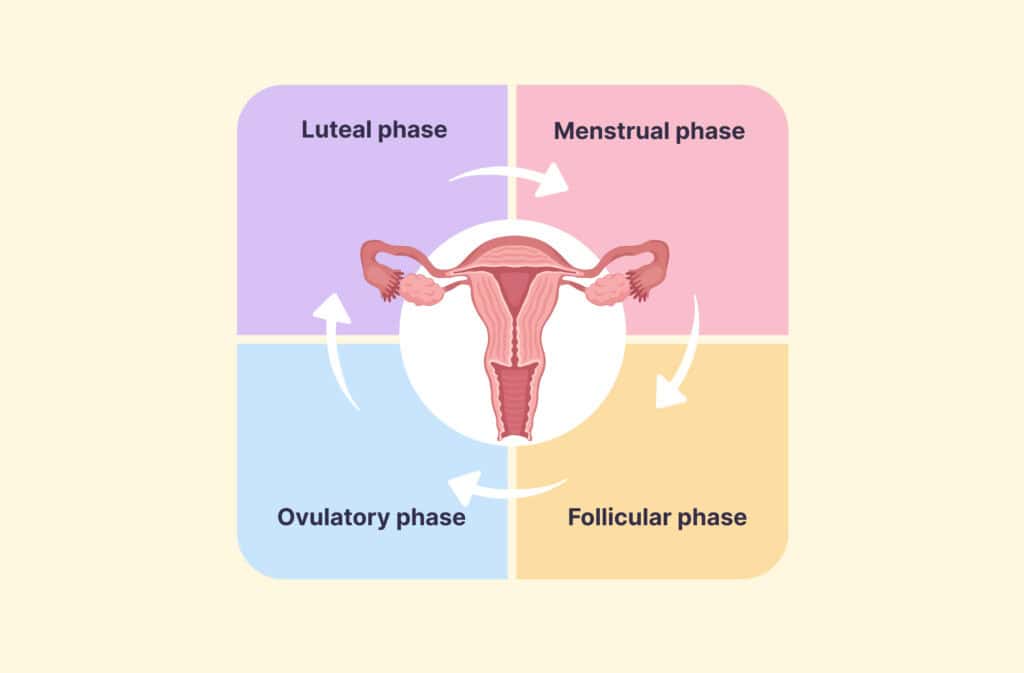
Master cycle syncing to align your lifestyle with menstrual cycle phases. Learn how to optimize diet, exercise, and productivity throughout your cycle. Expert tips from Femia.

